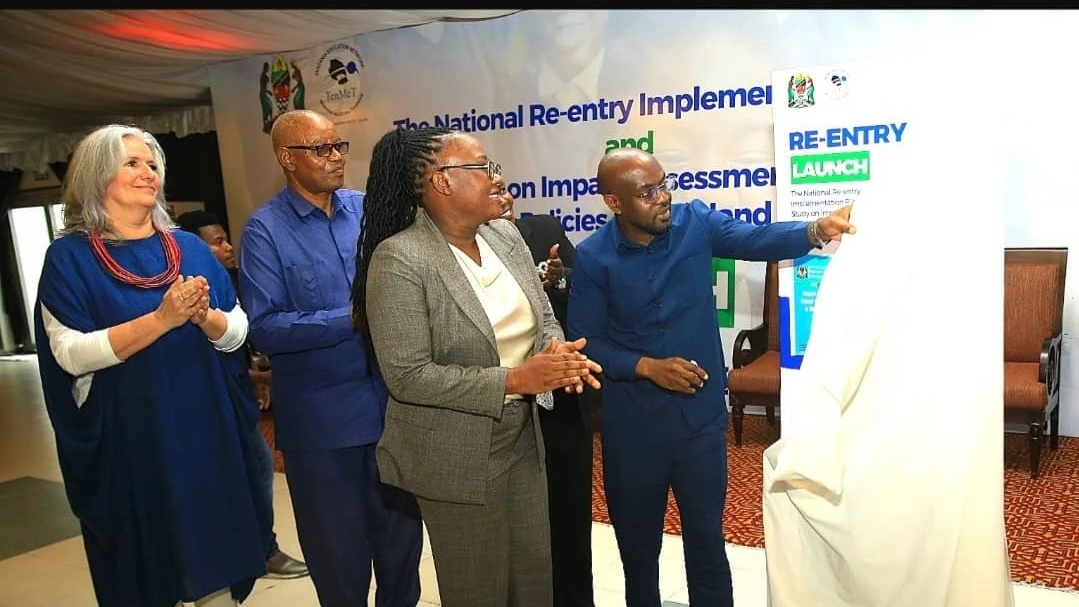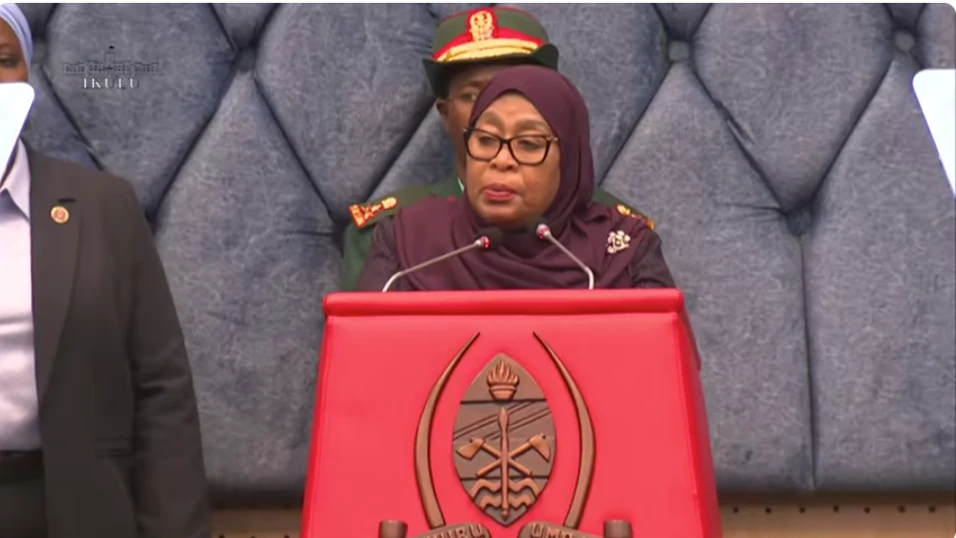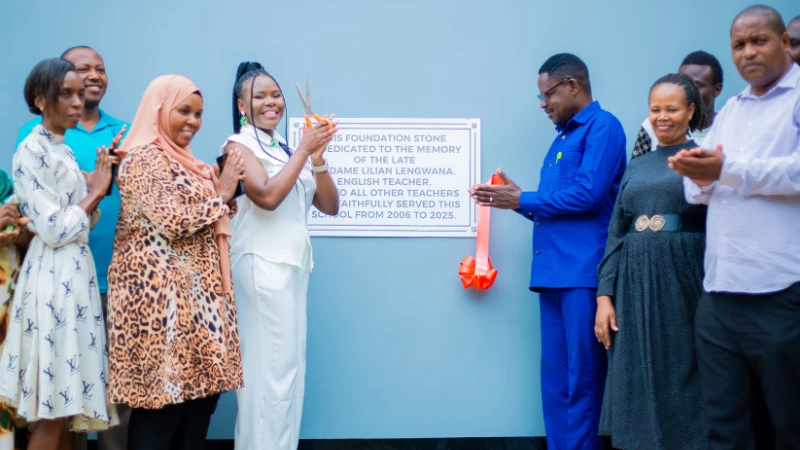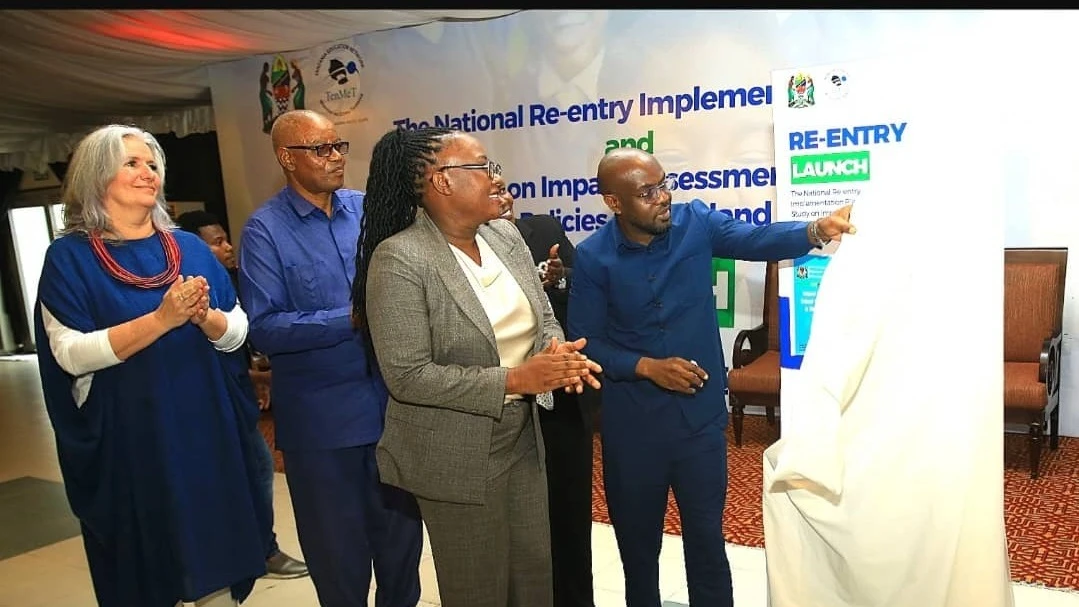Govt, Tenmet unveil new plan for out-of-school children

THE government and the Tanzania Education Network have unveiled a new National Re-entry Implementation Plan, a coordinated framework aimed at helping thousands of children who dropped out of school, including young mothers — return to learning and complete their education.
Launched in Dar es Salaam this week, the plan seeks to accelerate the implementation of Tanzania’s 2021 School Re-entry Policy, a milestone reform that allows girls who left school due to pregnancy and other challenges to resume their education.
According to the Ministry of Education, Science and Technology, there still thousands of children across mainland Tanzania who are out of school. The new plan aims to ensure that none are left behind.
Speaking during the launch, Dr Hussein Mohamed Omar, Deputy Permanent Secretary, Ministry of Education Science and Technology said the plan demonstrates the government’s firm commitment to providing every child with a second chance to learn.
“This initiative reaffirms President Samia Suluhu Hassan’s vision of inclusive education for all,” he said. “When a child drops out, it should not be the end of their story. With collective effort, they can return and rebuild their dreams.”
Dr Omar said the government has already supported over 30,000 learners to return to classrooms through programmes such as SEQUIP, and the new plan will expand coordination among schools, local authorities, and communities.
He called on parents, community leaders, and faith-based organisations to take an active role, stressing that “education is not the responsibility of government alone — it is a shared national duty.”
The National Re-entry Plan draws on findings from a new study by the Institute of Adult Education (IAE), which assessed the impact of the School Re-entry Policy since its introduction.
The study, presented by Prof. Sempeho Siafu, found that while the policy has enabled thousands of young mothers to resume learning, most prefer informal education due to its flexibility and mother-friendly approach.
Of the 22,800 girls who had resumed education by March 2024, around 17,700 enrolled in informal learning programmes, compared to 5,100 who rejoined formal schools.
“Informal education allows learners to study at their own pace, wear their own clothes, and even bring their babies,” Prof. Siafu said. “For many young mothers, that flexibility determines whether they stay in school or drop out again.”
He added that the formal school system still faces major barriers, including lack of childcare spaces, stigma, and limited awareness about the re-entry policy among communities.
Martha Makala, national coordinator of the Tanzania Education Network said the launch of the plan marks a turning point in Tanzania’s journey toward equitable education.
“This plan is about transforming commitment into action,” she said. “We want to ensure that every child — girl or boy, who left school has a clear, supported pathway to return.”
Makala added that the network advocates for the re-entry policy to be anchored in national law, protecting it from future political changes.
“We need to institutionalise second-chance education,” she said. “It should not depend on goodwill alone — it must be guaranteed by law.”
UNICEF Tanzania Chief of Education, Simone Vis, applauded Tanzania for turning progressive policy into practical change.
She shared stories of resilience from field visits to Songwe, Tabora, Dodoma, Dar es Salaam and Zanzibar where returning learners are balancing education with parenting.
“The girls told me how going back to school gave them hope again,” she said. “Their courage shows why we must keep working to make schools more inclusive and flexible.”
The study recommends expanding awareness campaigns, upgrading school facilities with breastfeeding and childcare spaces, and providing psychosocial support for young mothers.
© 2025 IPPMEDIA.COM. ALL RIGHTS RESERVED























